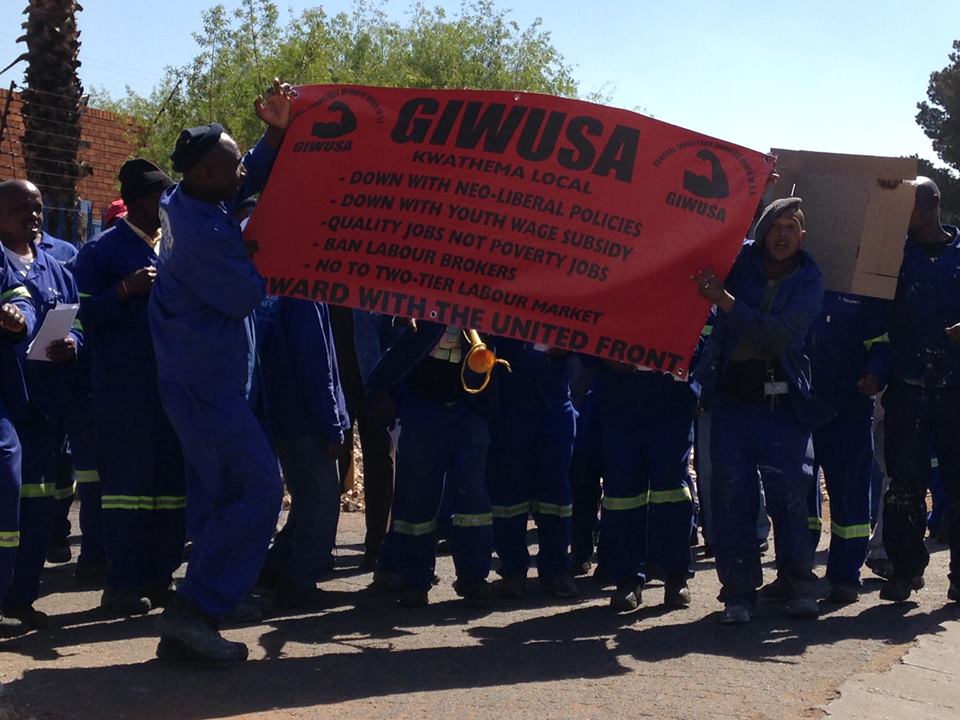Around a thousand members of the General Industrial Workers Union of South Africa (GIWUSA) employed in glass industry embarked on a strike action on Tuesday, demanding wage hike and regularization of workers hired through labor brokers. The strike came after the Glass Industry Employers Association (GIEA), which represents a number of employers in the sector, refused to meet their demands.
GIWUSA members struck work yesterday at various companies, including Nampak Glass, Consol Glass, PG lass, Shutterpruffe and Saint Gobain. One of their key demands is an 8.5% wage hike across the board. The current monthly minimum wage of glass industry workers is R 5,778 (USD 379). Whereas, the basic cost of living for a typical family falls anywhere between R 7,480 to R 11,300 per month.
The real incomes of the workers “are constantly being eroded by the unceasing increases in the costs of living. Basic necessities of life are becoming more expensive, turning daily living into a constant struggle. The strike is therefore a means of defending and protecting workers’ current living standards,” the GIWUSA said in a statement.
After three months of wage negotiation, that began in May, the GIEA offered only a 6.75% hike, while also demanding that the workers accept an agreement which seals this hiked wage for a period of two years. The union, however, is willing to commit only to a one-year agreement, which includes a hike of 8.5%.
Workers are unwilling to accept a two-year agreement because of the highly volatile economy that is abound with uncertainties about price fluctuations, GIWUSA president Mametlwe Sebei told Peoples Dispatch. After such a commitment, the workers would be unable to demand a corresponding wage hike to counter any further price rises during this period.
The strike action is being undertaken to defend the interests of the employees hired through labor brokers as well. These workers perform the same tasks as the permanent employees, but earn less and are not eligible to the same benefits. Given their higher job insecurity, these workers often have to concede to working in dangerous conditions which permanent employees can afford to refuse.
As per a constitutional court’s ruling in 2018, any worker hired by a firm for more than three months through a labor broker at an annual pay of R 205,000 (USD 13,458) or less should be made a permanent employee of that firm.
Accordingly, the union has demanded that such workers be made permanent employees to whom the same wages and benefits are extended. The GIEA’s refusal to heed to this demand drove the workers to take strike action.





